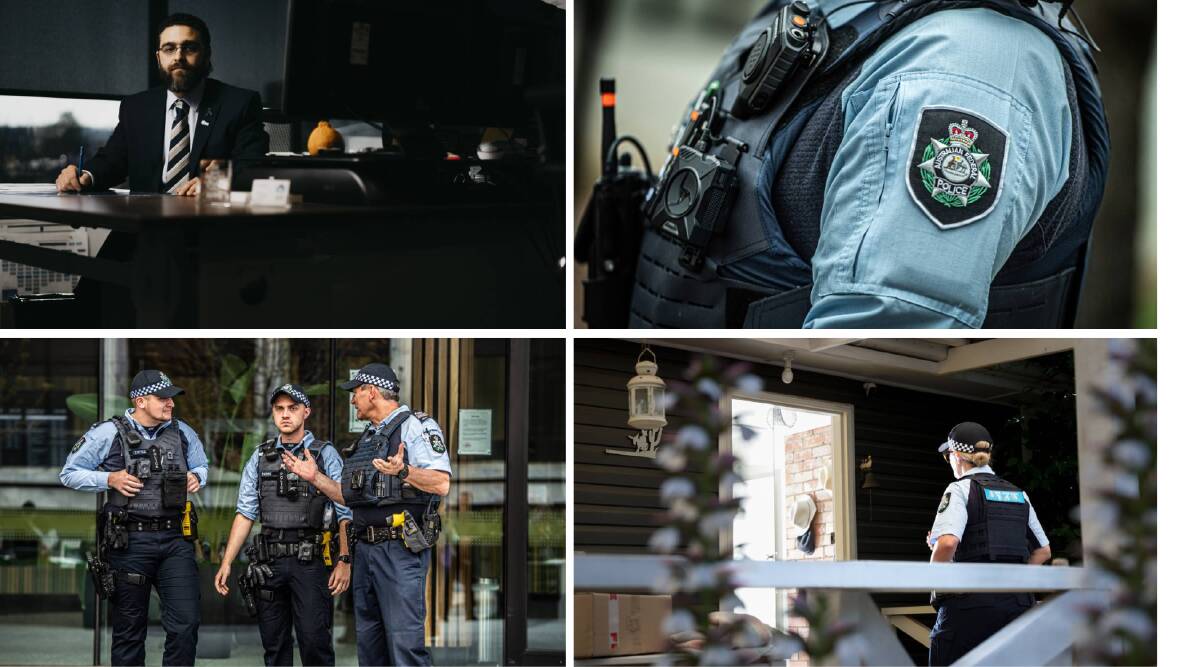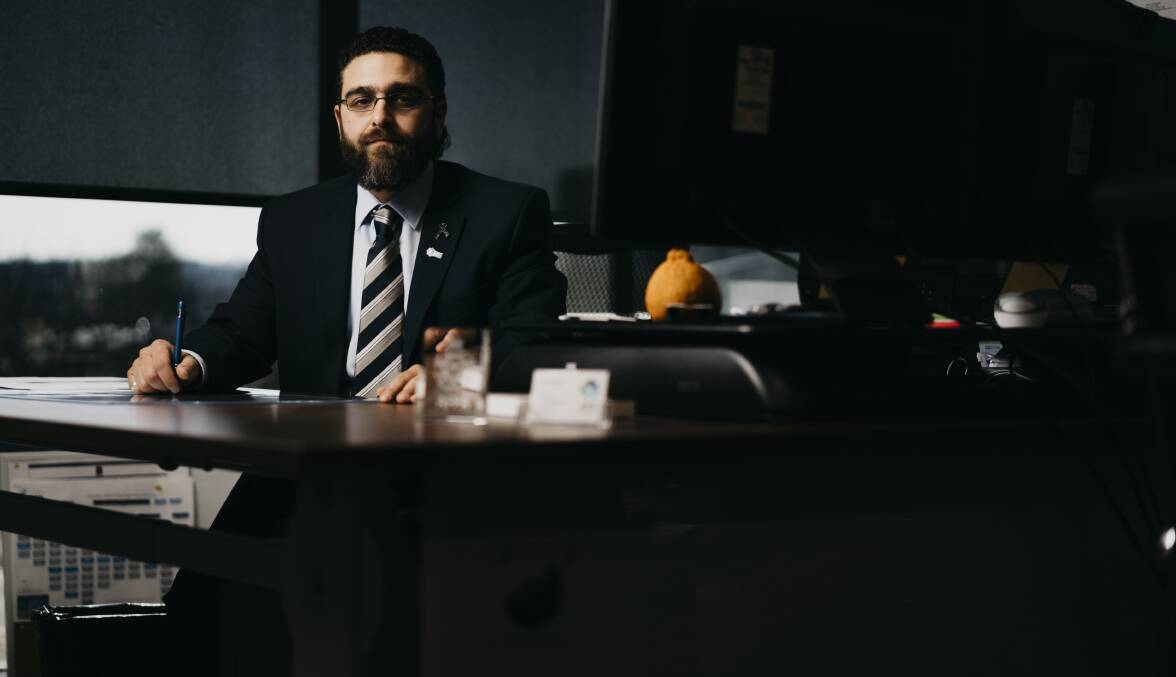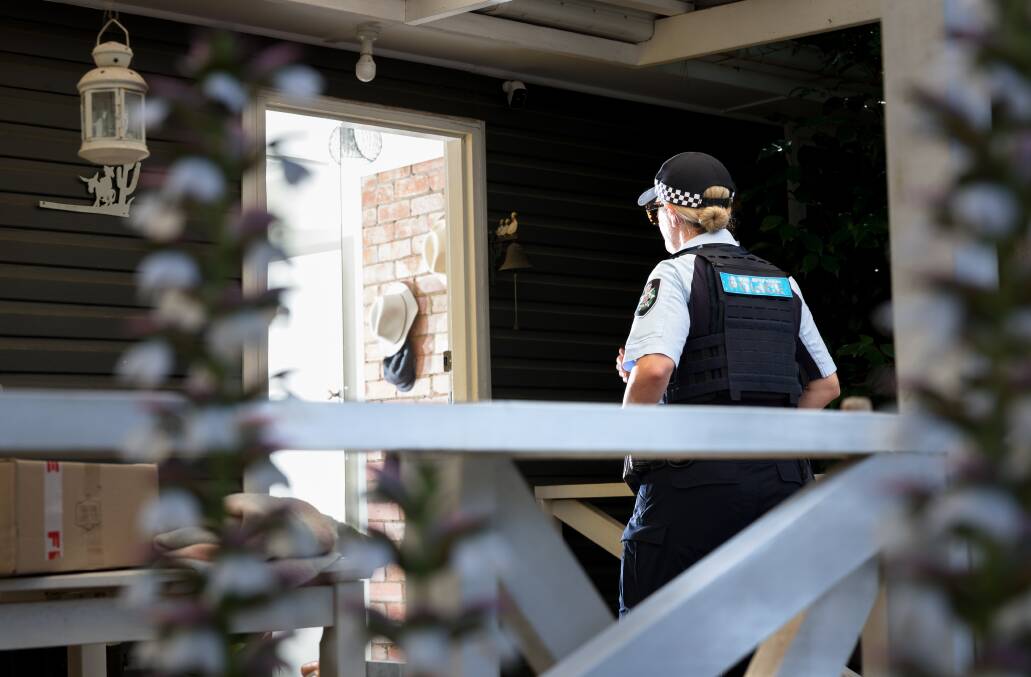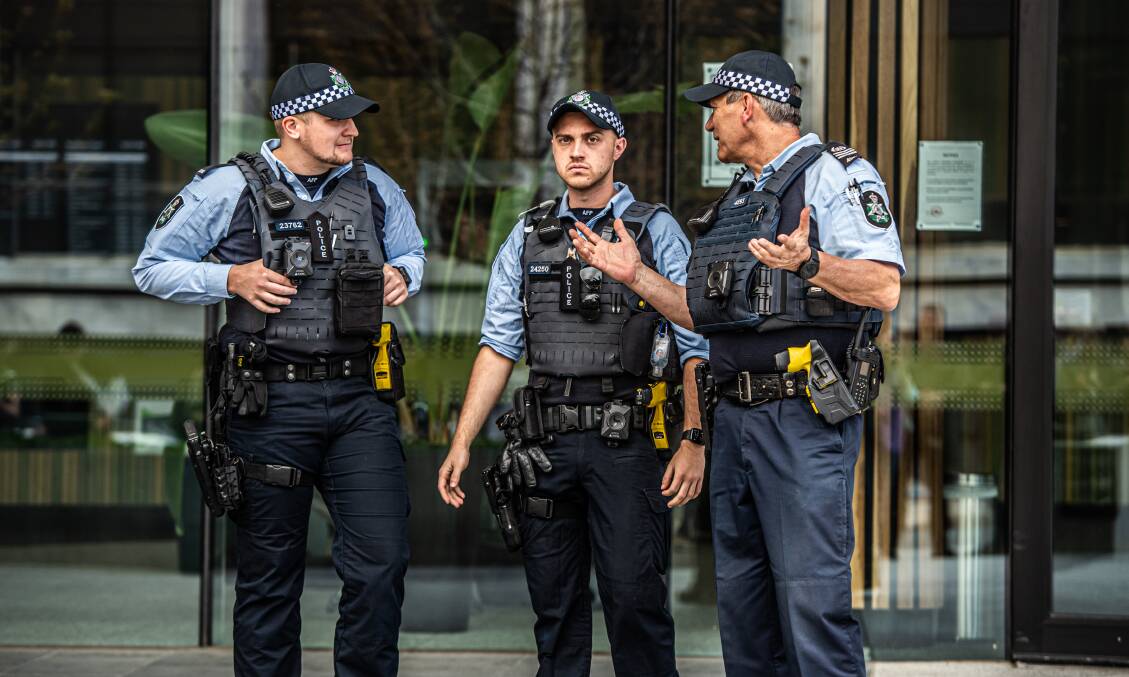
As ACT Policing commits more resources to manage the fast-growing issues of family violence, mental health and sexual assault, a key challenge remains: having sufficient sworn officers at police stations to manage the day-to-day response tasks of a fast-growing city.
Add in a complete unknown quotient - from October, the ACT becoming the first jurisdiction in Australia to decriminalise all drugs - and the path into uncharted policing territory, with the latest funding announcement for fresh recruits yet to result in boots on the ground, becomes even more uncertain.
In raw numbers, the number of sworn police directly allocated to stations across Canberra's north and south districts has fallen by 21 officers since 2019.
And when Canberrans complain on social media forums they rarely see a police car on the road, it's because the number of sworn officers attached to the Traffic Operations and Emergency Planning team has reduced by seven over the past four years.
General duties police operate in rolling-rostered teams. At optimum strength, each team is meant to comprise eight people led by a sergeant or acting sergeant. At any time, one of those members is usually calculated as being on leave and another in training.
But out "on the road", the resulting team strength of six officers has often been diminished to four - that's the bare minimum to put two police cars out on the road - as more members call in sick, or are off on stress leave.
As the police association has repeatedly warned: running 'lean' on staffing in a job which is inherently hazardous and stressful eventually has a poor outcome because it incurs overtime, where one team draws down from another.

Overtime is a non-reportable for police and nowhere in its annual report is the word mentioned.
Police association president Alex Caruana says in the ACT, overtime is a direct result of low police numbers.
"There will be instances where overtime is required, such as during a critical incident, and this is expected. This type of overtime is fine," he said.
"Where we draw the line is when squads are below minimum strength and members are having to work in dangerous situations without the necessary support. For us, this is a work, health and safety concern."
The recent Sofronoff judicial board of inquiry delivered a very rare insight into this stress-filled occupation.
The inquiry revealed at any one time, 13 of the junior and senior sworn investigators involved in the aborted Lehrmann-Higgins sex assault case had accessed short- and long-term sick leave.

Meanwhile, the number of "enabling" positions "hired" from the federal police ranks - roles such as forensics, dog team, and tactical response - has soared, up from 107 in 2019, to 203 in the past financial year.
These "enabling" staff are not counted in the ACT's FTE (full-time equivalent) numbers but nonetheless provide essential support services.
The announcement in this year's ACT budget that police had gained funding for 25 more new officers per year for the next five years will deserve close attention, and with an eye on recent history.
In 2018-2019, the ACT annual report that year revealed four police recruit classes had progressed through the Australian Federal Police College and yet the average number of sworn FTE (full-time equivalent staff) reported by ACT Policing in its June 2019 annual report increased by just 16. That's less than one average recruit class size.
Average FTE is preferred by the police over headcount as the most accurate way of tracking staff numbers because it excludes "inoperatives"; those officers who are injured, on stress leave, or stood down due to disciplinary reasons.
A confluence of pressures is now building on the Australian Federal Police and it will have a significant effect on how so-called "Outcome Two" - the $200 million-per-year contracted service to the ACT government known as ACT Policing - manages its people in the years ahead.
ACT chief police officer Neil Gaughan told a recent Legislative Assembly committee hearing several key areas were now "civilianised".
For over the past year, two key priority response target times - the time taken for officers to attend an urgent job - haven't been achieved. And given some of the commentary across social media, the Canberra public has noticed.
"Our police operations area ... [is] where pretty much the entire workforce is now civilianised, and it is a large number," Deputy Commissioner Gaughan said.
"The second area is our police intelligence area, which is also predominantly civilianised."

He also maintained ACT police were now sitting at their "affordable FTE" level. That is, the number of full-time staff proportionate to how much the ACT government pays.
The police association says this clearly demonstrates ACT Policing has been underfunded and underresourced for a significant length of time. National resources are shifted in and out of the local ranks like an elaborate shell game.
"ACT Policing has for a long time been dead last of Australian jurisdictions when you compare officers per 100,000 population," association president Alex Caruana said.
"The ACT population has increased, along with calls to service for police. Geographically, the ACT has also grown with new suburbs developed. Unfortunately, what we haven't seen is the same growth in police numbers.
"The ACT has long benefited from the policing arrangements with the AFP that sees national capabilities regularly deployed to the ACT. The AFP provides world-class forensic, cyber and other capabilities to the ACT community and this comes at a financial cost to the AFP."
While the additional ACT government funding from this year's budget should grow sworn numbers by around 25 more per year, ACT Police Minister Mick Gentleman gives the police free rein to divest resources as required.
It's a juggling act because the ACT loses around 10 per cent of its workforce back into ranks of the federal police - it is, after all, one organisation, all serving at the commissioner's command - and 3 per cent to natural attrition.
"Releasing" too many officers too quickly into roles at AFP National - many of these are officers with seniority - and replacing them with graduating recruits results in a highly inexperienced community policing workforce.
Of the ACT's current sworn workforce, 71 per cent are at positions between the most junior graduate level (band 2) and the senior constable-type grade of band 4.
Planned pressure relief valves for this difficult staffing equation are the police services model and online crime reporting portal. Both are aimed at relieving front-line pressure.
Online reporting is aimed at pushing low victim impact crime such as property damage, minor theft and petrol drive-offs to an online portal. It generates a job number, which can be used for an insurance claim.
The police services model, funded by a separate $34 million injection four years ago, is a somewhat less transparent. It talks about proactive policing, "operationalised intelligence", and an upgraded research capability.
Operation Toric, which just recorded its 300th apprehension since August last year, resulting in 750 charges, offers a working model of how that operates.
But Toric is staffed by a rotation of general duties officers drawn down from the stations' general duties teams. So while it builds capability in one area, it diminishes it in another.
The next big challenge for ACT's police will arrive in just a few months when the possession of small quantities of currently illicit drugs - with methamphetamine regarded as the most dangerous given its physiological effects - become decriminalised.
When the thin blue line is already stretched, will the unknown quotient of drug decriminalisation stretch it to breaking point?
The ACT's sworn police numbers (as at June) v ACT population
2018: 642 (+108 "enabling") / 406,692
2019: 670 (+107) / 412,576
2020: 654 (+107) / 417,002
2021: 674 (+161) / 421,780
2022: 677 (+203) / 426,270
We've made it a whole lot easier for you to have your say. Our new comment platform requires only one log-in to access articles and to join the discussion on The Canberra Times website. Find out how to register so you can enjoy civil, friendly and engaging discussions. See our moderation policy here.







